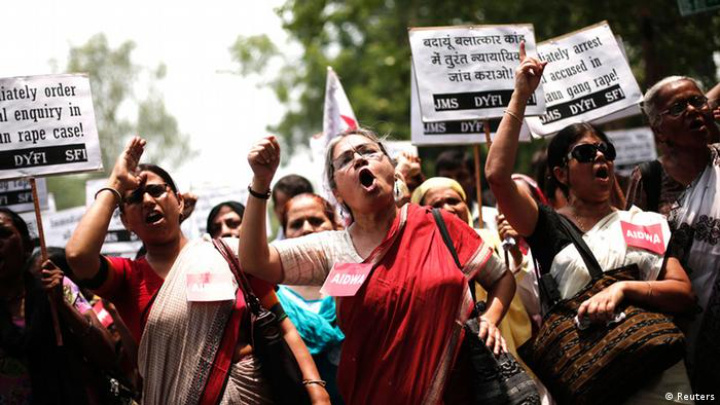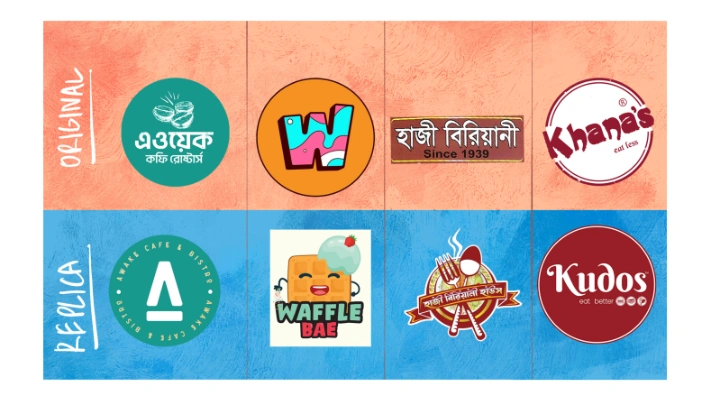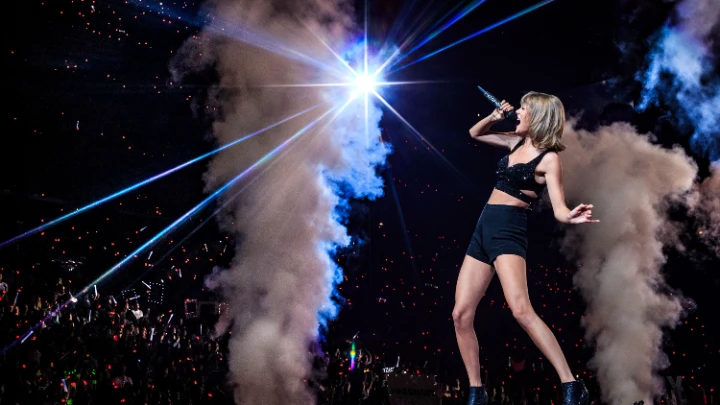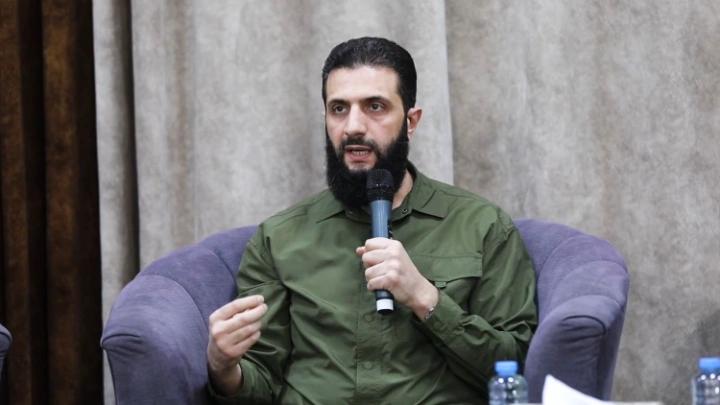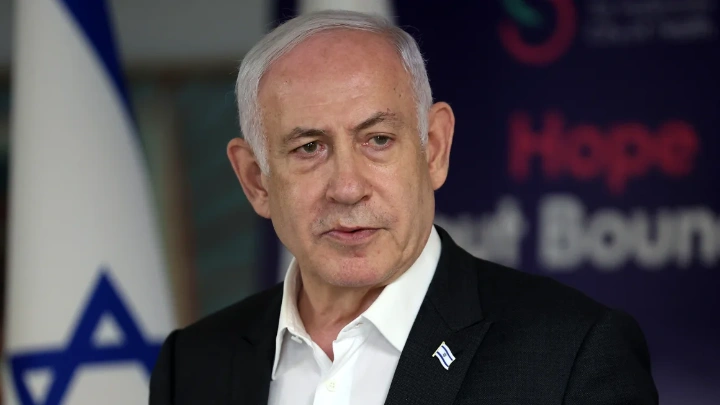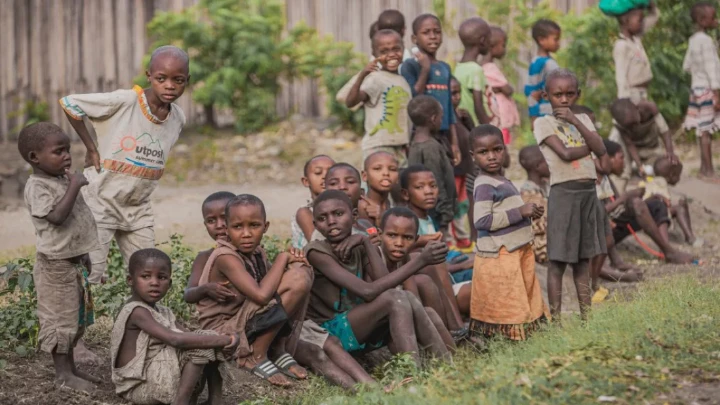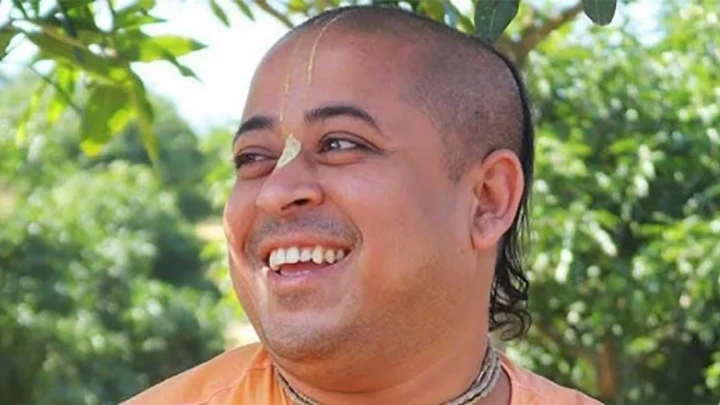India: Will sexual violence against Dalits ever end?
Shining BD Desk || Shining BD
There has been a shocking increase in sexual violence committed against Dalit women who languish at the bottom of India's caste system. But the issue is likely worse than it appears because so many crimes go unreported.
Two Dalit sisters — aged 15 and 17 — were found hanging from a tree in northern Uttar Pradesh's (UP) Lakhimpur Kheri district last week. They had been raped and strangled, according to postmortem reports.
Police arrested six men accused of gang-raping and murdering the girls. A local police chief said the sisters had been lured into a field where they were assaulted and strangled to death with their scarves.
The attack was yet another blot on the widespread sexual violence faced by India's community of nearly 80 million-strong Dalit women traditionally positioned on the bottom rung of a centuries-old caste system.
Sexual violence normalized
Last week's rapes and killings evoked memories of a similar incident in 2014 when two Dalit girls, who were cousins and both minors, were kidnapped, gang raped and hanged from a tree in the Badaun district of UP.
The 2014 incident triggered a massive outrage during which the United Nations called for immediate action against the perpetrators.
In 2020, the gang-rape and murder of a 19-year-old Dalit girl by some high-caste Hindus in Hathras, another district in Uttar Pradesh, also put the spotlight on the plight of the community.
Caste-motivated killings, social exclusion and other abuses commited against Dalit woman are regular occurrences
"Rape against Dalit women and girls is a war against their bodies and dignity," said Ruth Manorama, a prominent Dalit social activist and winner of the 2006 Right Livelihood Award, a prize often known as the Alternative Nobel.
Men from dominant casts often use sexual violence against Dalit women to "assert their caste power" and to "humiliate them and treat them as inhuman," she said.
Dismantling the caste system
Manorama told DW that the nature and frequency of the violence faced by Dalit women is unique to them as it is backed by economic oppression and socially sanctioned through the continued existence of the caste system.
"Therefore, the Dalit women's movement should give a clarion call for annihilation of caste. Multifarious strategies need to be strengthened to uplift them socially, economically and politically," she said.
The country's latest National Crime Records Bureau showed nearly 71,000 crimes against people from Dalit castes were pending investigation at the end of 2021.
Widespread discrimination
Data also shows a 45% rise in reported rapes of Dalits between 2015 and 2020. The true figure is likely to be much higher, however, as many such crimes go unreported, ue to fear of reprisal or intimidation by police.
Three states — Uttar Pradesh, Bihar and Rajasthan — reported more than half of the cases of crimes against the Dalits.
"Uttar Pradesh has one of the highest crimes against Dalits in the country," Beena Pallical, a general secretary at the National Campaign on Dalit Human Rights, told DW.
"The women's commission has never uttered a single word, the entire justice system in this country needs to be relooked at. Let us demand protection for Dalit women while they are alive," she added.
There are approximately 240 million Dalits who make up some 16% of the population, according to figures from UNHCR, the United Nations refugee agency.
Women who are Dalits face a triple burden of gender bias, caste discrimination and economic deprivation.
Rights groups say that Dalit women are particularly vulnerable to sexual violence and other attacks
Culture of silence
Since the early 1990s, violence against Dalits has escalated dramatically in response to growing Dalit rights movements. But despite strict laws in place and affirmative action policies, caste-motivated killings, social exclusion and other abuses are a daily occurrence.
A 2020 report by the international women's rights organization Equality Now found that Dalit women and girls are often denied justice because of a "prevalent culture of impunity, particularly when the perpetrators are from a dominant caste."
Analyzing 40 cases of sexual violence in Haryana, in India's north, the report highlighted the journey of victims through the criminal justice system and described the specific barriers faced by Dalit survivors of sexual violence.
Finally, the report issued urgent recommendations to the Indian and Haryana state governments to take action towards ending caste-based sexual violence.
Cast-driven rivalries
An October 2021 analytical study about sexual violence against Dalit women in the Journal of International Women's Studies found that significant factors such as caste and gender interrelated or correlated with each other in rural pockets.
"Dalit women are illiterate, helpless to accept the social hierarchy norms, working as bonded laborers as landless beings, bearing untouchability as social pressure, and unaware of their civil, social, economic, and cultural rights," the study found.
Because of their perceived "low" and "impure" status, it is assumed that these Dalit women do not deserve honour and dignity — and this becomes the main factor for sexual violence against Dalit women, the study observed.
Cynthia Stephen, a social policy researcher who has worked on Dalit issues, said the simplest solutions include empowerment of the entire Dalit community and especially the women.
"The law has to be implemented strictly and the impunity enjoyed by the perpetrators of the crime must end. Courts and the police must act decisively in this matter without fear or favor," Stephen told DW.
"What's more there must be education of the young and older males on equality of the sexes. Right now, there is so much focus on the males that women's rights have been eroded by neglect and disregard."
Caste dynamics permeate every aspect of life across vast swathes of India, particularly in rural areas.
A potent mix of caste-driven rivalries — and sometimes religion-based conflicts — have been the prime motivators to commit sexual violence.
With regard to the exploitation of Dalit women, the government has yet to back its rhetoric on India's so-called apartheid with real measures that achieve concrete results.
- Author Murali Krishnan (New Delhi)
Shining BD

